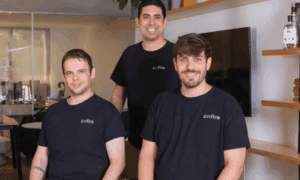In recent years, teaching has shifted toward a more collaborative approach. Schools are beginning to recognize the value of teachers supporting one another in professional growth. The move away from older training methods—which often left educators working in isolation—has opened the door to more shared learning and meaningful teamwork.
A stronger focus on peer support helps teachers feel more connected and confident. Mentoring relationships and the exchange of practical strategies lead to greater engagement, which in turn strengthens both classroom instruction and the broader school community.
Why Peer-Led Instruction Is Gaining Ground in Teacher Training in Los Angeles
Peer-led teacher training in Los Angeles is transforming how educators grow in their profession. Rather than sitting through generic workshops, teachers now co-plan lessons, observe peers in action, and exchange immediate, practical feedback. These sessions build trust, make learning more dynamic, and encourage experimentation. Informal routines—like sharing lesson plans during prep time—become meaningful opportunities for collaboration.
Embedding mentorship into the daily rhythm of school life strengthens relationships and fosters continuous growth. Teachers feel more supported, connected, and motivated to improve. This shift not only enhances individual teaching but also contributes to a more engaged, effective, and collaborative school environment overall.
How Teacher-Led Curriculum Audits Are Reshaping Professional Growth
Curriculum audits led by teachers are changing how professional growth happens in schools. Instead of depending only on outside evaluations, teachers now take the lead in reviewing what they teach. This helps them see if the materials are inclusive and if the teaching methods work for all students. When teachers suggest improvements that reflect different perspectives, learning becomes more relevant and fair.
Bringing these audits into ongoing teacher development supports teamwork. Each review becomes a chance to talk through changes and make things better. When teachers share their findings, trust grows, and everyone feels more connected. Making time for regular reviews improves teaching and gives students a better classroom experience.
Building Internal Leadership Pipelines Through Teacher Mentorship
Structured mentorship programs are becoming essential for developing leadership in schools. They provide clear paths for career growth, allowing teachers to build skills that benefit themselves and their peers. Mentors often guide newer teachers through real lesson planning, helping pinpoint what works and what needs refining. This support strengthens teaching quality and cultivates future leaders.
Mentorship also fosters a space for sharing tips and experiences, promoting a culture of continuous improvement. Trust deepens as teachers exchange advice and feedback. During check-ins, mentors help colleagues reflect on challenges like group work or pacing for diverse learners, keeping growth ongoing and visible.
Real-Time Coaching Methods That Are Outperforming Traditional PD
Real-time coaching is changing how teachers grow professionally. Coaches work alongside teachers during class, eliminating the gap between advice and action. By observing lessons as they happen, coaches provide immediate, relevant feedback tailored to the moment. The result is a flexible and supportive environment where teachers can apply new strategies on the spot.
When teachers get feedback while they teach, their goals and methods line up more naturally. It builds their confidence and improves their delivery. Because the feedback is immediate, teachers are more willing to experiment and grow. Scheduling regular coaching sessions helps teachers keep improving and makes schools feel more connected and supportive.
Why Teachers Are More Invested When They Lead Their Own Training Programs
Letting teachers run their own training sessions is a big step toward giving them more control over their careers. When educators help shape the content and structure of their training, they feel more connected to it. Training becomes a real conversation where teachers tackle the issues that matter to them. That way, training doesn’t just check boxes—it feels useful and meaningful.
When teachers guide their own learning, their energy and commitment go up. This kind of training also helps build stronger bonds among the staff and leads to a healthier, more productive work environment. Taking time to ask teachers what kind of training they want creates better teamwork and matches training to real needs.
Teachers collaborating with teachers is transforming school culture. Instead of relying on generic workshops, educators now share strategies, refine lessons together, and offer immediate, practical support. Mentorship strengthens relationships, curriculum reviews promote equity, and real-time coaching encourages experimentation. When teachers design and lead their own training, it becomes more meaningful and relevant. Growth feels natural, not forced. Schools that make room for open conversations, peer input, and shared planning create environments where teachers feel valued and supported. Small, consistent changes in daily practice lead to lasting improvement—not only in teaching quality but also in staff morale and student outcomes.



































